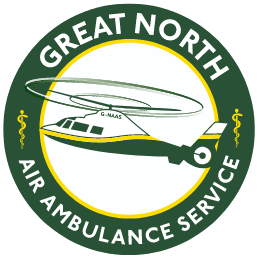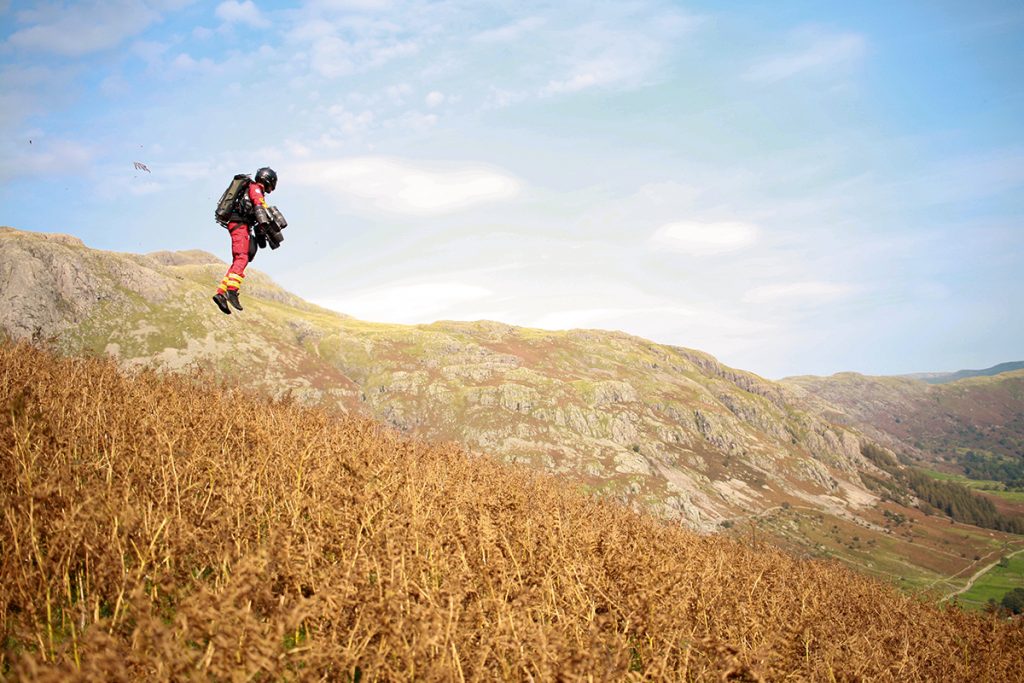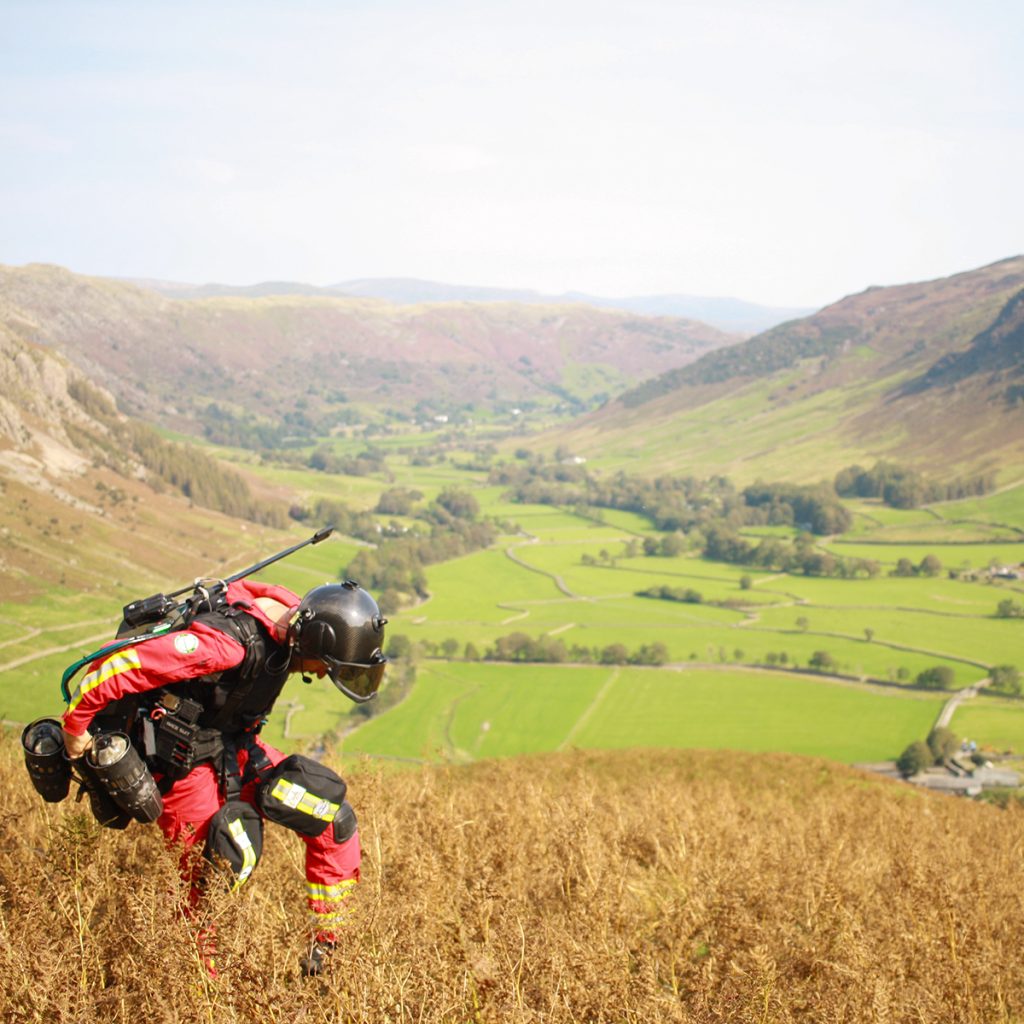The Great North Air Ambulance Service has partnered with the renewable energy leader Ørsted and Gravity Industries to trial the viability of Jet Suit paramedics for the wind industry.
The initiative seeks to further health and safety offshore by improving the way emergency first responses are applied out at sea.
The Great North Air Ambulance Service’s journey toward a Jet Suit-enabled paramedic service started in 2020 and aims to train experienced air ambulance paramedics to use the Suit to access patients in the Lake District. At this early stage, the training has already enabled one paramedic to complete their first free flight, safely operating the Jet Suit unassisted, with more paramedics reaching this stage soon.
The next stage, looking to commence in the summer, will bring paramedics’ flight skills to a level where real operational experience can be assessed – and real assistance will arrive via Jet Suit paramedics in the Lake District.
The main areas of focus for the Jet Suit Paramedic would be on-site triage and urgent casualty response that should drastically improve patient stability and survivability.
Andy Mawson, Director of Operations at GNAAS, said: “We think the Jet Suit paramedic will speed up the response to some hard to access patients in the Lake District, and allow us to reach more patients. But in order to know for sure, we are putting it to the test.
“The most recent trials in the area, held at the start of the month, were a great success and showed how far and how quickly the Jet Suit can reach otherwise inaccessible locations. Thanks to Ørsted, this incredible dream could become a reality.”
Gravity Industries is the first organisation of its kind that designs, builds, and flies the world’s first patented Jet Suit, pioneering a new era of human flight.
This new technology has the potential to provide significant benefits, not only for emergency responses in the wind industry but also in the future potential as another way for technicians to transfer to and from offshore structures.
Since Gravity Industries and GNAAS’ first paramedic response trial in the Lake District in 2020, Gravity has grown significantly as an organisation, driven by the ongoing advancement of its Jet Suit technology. This now includes more powerful turbine engines that start faster and benefit from a sophisticated CAN Bus control system. The Suit is now fully 3D-printed in polypropylene, resulting in a system with vastly greater capabilities, which has enabled Gravity to push into more challenging mountainous environments.
The new Jet Suit improvements should result in increased manoeuvrability and faster deployment. Enormous time savings have already been found and proven in this concept against conventional access methods on foot or by helicopter.
Richard Browning, Founder and Chief Test Pilot at Gravity Industries, said: ‘Our drive for creating the Suit came from wanting to challenge what seemed like the impossible and to now see it being used for areas of Special Forces mobility and First Response Search & Rescue, it’s very exciting. We’re enjoying working in a new sector and helping the front line workers in clean energy. The Jet Suit produces up to 144kg of thrust; the thrust to weight ratio works out to be greater than any known Jet Fighter we are aware of.’
Peter Teglman Schiøler, Product Owner for O&M Logistics at Orsted, said: ‘With safety at the forefront of everything we do, we want to explore ways of getting emergency help to our colleagues in times of need.
With strong innovation opportunities in the UK, we hope to connect the offshore wind industry into this environment. With the trial together with Gravity and GNAAS, we aim to bring the Jet Suit technology closer to the offshore wind industry and enable the Lake District to assess the usage of this technology for first aid support.’





